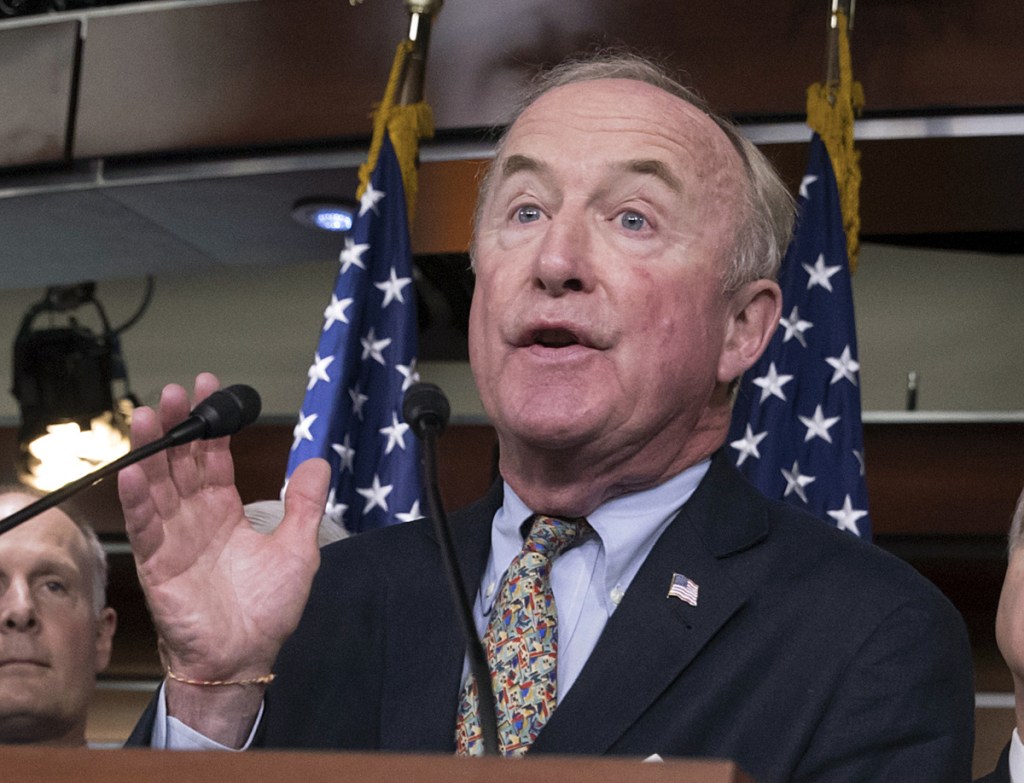WASHINGTON — Veteran Rep. Rodney Frelinghuysen, the powerful chairman of the House Appropriations Committee, announced Monday that he will not seek re-election and will retire at the end of his term.
The New Jersey Republican was facing his first competitive re-election race in decades and joins a growing roster of GOP veterans who are heading for the exits.
Frelinghuysen said in a statement that he was proud of his efforts to work in a bipartisan manner to advance the annual spending bills that make up almost one-third of the federal budget. Frelinghuysen became chairman of the powerful spending panel last year after spending several years as chairman of its defense subcommittee.
A moderate Republican, Frelinghuysen was first elected in the 1994 GOP wave that put Republicans in control of both chambers. He hails from a New Jersey political dynasty that dates to the late 1700s. His father Peter served in the House for two decades.
“My deepest devotion has been to supporting our Armed Forces, all volunteers, and their families, here and abroad, and those warfighters who have returned home with injuries and who depend on a functioning veterans’ health care system,” Frelinghuysen said.
Unlike several other GOP chairmen to announce their retirements after running up against GOP term limit rules for panel heads, Frelinghuysen had years to go as Appropriations chair – assuming Republicans retain control of the House in the 2018 midterm. But he angered some conservative lawmakers over votes against the GOP tax overhaul measure last year and his opposition to an initial version of the party’s effort to repeal former President Barack Obama’s health care law.
Frelinghuysen joins Foreign Affairs Chairman Ed Royce and Oversight Chairman Darrell Issa, both of California, as top GOP lawmakers who have recently opted against difficult re-election bids.
All three represent suburban districts where President Donald Trump has lagging popularity and where many residents could be negatively affected by provisions in the new tax law that went into effect this year.
Though it offers rate cuts to nearly every U.S. household, the law also limits to $10,000 the amount of state and local taxes that a tax can deduct when figuring taxable income. Interest calculated on mortgage debt beyond $750,000 also would not be deductible, down from the current $1 million cap. Those provisions will limit the overall benefits of the new law – or even mean some increases – for many residents in areas where a high overall cost of living includes steep local property tax bills.
Frelinghuysen himself acknowledged the conundrum when he voted against the GOP’s tax law. But the Democrats vying for his seat had already pounced, with one candidate, former federal prosecutor Mikie Sherrill, said he was “complicit” in the new law as one of House Speaker Paul Ryan’s top lieutenants.
Associated Press reporter Bill Barrow contributed to this report.
Send questions/comments to the editors.


